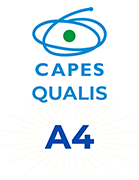A Defensoria Pública da União (DPU) e o Acesso à Justiça:
uma breve análise do programa itinerante “A Defensoria vai aonde o povo pobre está” na mesorregião Sul Fluminense
DOI:
https://doi.org/10.46901/revistadadpu.i14.p137-150Abstract
The purpose of this article is to analyze the offer of free legal aid in the Mesoregion Sul Fluminense, located in the state of Rio de Janeiro, by the Defensoria Pública da União (DPU). Initially, with the historical methodology, based on the work "Access to Justice" by Mauro Cappelletti and Bryant Garth, and later deductive, with the study of the laws of the Brazilian legal system on the accessibility of justice, being applied to the aforementioned region. Thus, there is the exposition of laws, bibliographies and official internal documents of the referred body to demonstrate the performance of the DPU in this mesoregion. As a result, the positive impact on access to justice for all towns and communities belonging to that locality can be addressed through the inclusion program called “The Defensoria Goes Where the Poor People Are”. Headquartered and chaired in Volta Redonda, this itinerant action benefits, through legal aid, numerous social groups, including the collectors of recyclable materials that make up the mesoregion. Incorporating, therefore, the vision of the first renewing wave of access to justice, defended by Cappelletti and Garth, to the reality of Mesoregion Sul Fluminense by bringing information and legal aid to vulnerable citizens.
Downloads
Published
How to Cite
Issue
Section
License
Copyright (c) 2020 Revista da Defensoria Pública da União

This work is licensed under a Creative Commons Attribution-NonCommercial 4.0 International License.
A. Authors retain the copyright and grant the journal the right of first publication;
B. Authors are authorized to take additional contracts separately, for non-exclusive distribution of the version of the work published in this journal (e.g.: publishing in an institutional repository or as a book chapter), with recognition of authorship and initial publication in this journal;
C. Authors are allowed and encouraged to publish and distribute their work online (e.g.: in institutional repositories or on their personal page) at any point before or during the editorial process, since this can generate productive changes, as well as increase the impact and citation of the published work.




.jpg)

